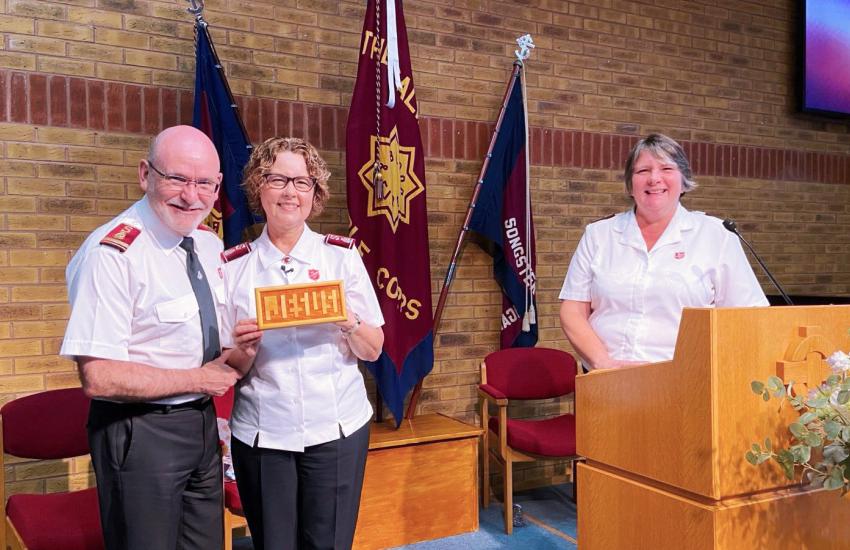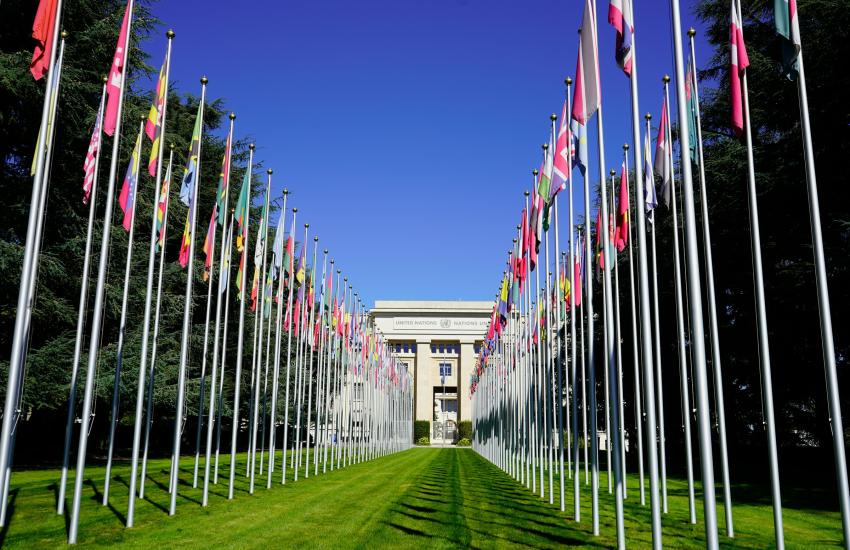Statement of position
The Salvation Army is opposed to gambling. The nature of gambling lends itself to exploitative, deceptive and manipulative practices. It is contrary to Christian principles of love, freedom from oppression and concern for others.
As such it should not be a means of income generation or economic development, whether by government agencies, charitable organisations, churches or commercial interests.
Background and context
Gambling involves the exchange of money or goods wagered in artificially created games of chance. The gains of the winners are made at the expense of the losers. Wagers are made hoping for unearned wealth for the ‘lucky few’, although the vast majority of money staked remains with the organisers. People may begin gambling in an apparently harmless way, but for some, continued participation leads to dependency and a host of other social, psychological and spiritual problems.
Gambling is becoming increasingly common and accessible, often promoted and enabled by governments. Gambling may be large and sophisticated – such as lotteries, casinos, slot machines, online gambling or sports betting – or small and loosely organised informal games of chance. Hundreds of billions of dollars are gambled worldwide every year.[1] Access to gambling has increased dramatically in the past several decades. Governments have moved to make gambling legal and, in many cases, have become the chief promoters of gambling. A large majority of the adult population of countries where gambling is legal participate.
Gambling often preys on the most vulnerable people who seek ‘quick and easy money’ to alleviate their problems. Statistics indicate that poor and working class individuals and families are disproportionately affected by the gambling industry.[2] They may not gamble more frequently than the rich, but the costs they pay are greater. When people become problem gamblers they often disregard their primary responsibilities to family, work and society. Too often gambling leads to financial ruin, dishonesty and criminal behaviour.
Studies show that gambling during adolescence dramatically increases a person’s likelihood of developing a gambling dependency.[3] The association of gambling with abuse and dependency is most pronounced in groups reporting early‑onset gambling. This observation suggests that gambling during adolescence may substantially impact adult function.[4]
Gambling is not merely a harmless activity but can become a compulsive dependency. The rates of pathological gambling worldwide range between 0.8% and 1.8%.[5] This translates into millions of individuals. It is exceedingly rare for them to seek treatment.[6]
Grounds for the position of The Salvation Army
The Salvation Army believes that all our resources ultimately belong to God and that we have the responsibility to use money productively, to guard against greed, and to avoid gaining at the expense of others (see 1 Timothy 6:3‑10; 17‑19).
Gambling runs counter to Christian teachings about love, respect, self‑control and compassion for others (see Galatians 5:22‑23). Those who may be at low risk of becoming problem gamblers still have a responsibility to protect those who are at greater risk (see 1 Corinthians 8:9).
It is not for anyone to condemn or judge those who suffer from addiction (see Luke 6:37). We all have our own weaknesses. Christian principles teach us to help problem gamblers to recover, be whole persons and regain self‑respect.
Governments are supposed to be God’s servants and seek the welfare of society as a whole. When the state uses gambling to collect revenue from a vulnerable population, it is not acting in good faith towards the citizens it is to serve.
Practical Responses
- The Salvation Army has concern for everyone suffering from gambling dependency and those impacted by their actions. Salvation Army soldiers commit to abstain from gambling in any form. In the context of fundraising for charities, Salvationists are encouraged to make donations rather than participate in gambling activities.
- The Salvation Army encourages everyone to understand the risks of gambling and will encourage education and prevention programmes to this end.
- The Salvation Army engages in advocacy with governments, commercial entities and individuals concerning the inherent dangers of gambling and the suffering it inflicts on gamblers and their families.
- The Salvation Army opposes the stigmatisation of those suffering from a gambling dependency. It seeks to support gamblers and their families through the provision of education, counselling and rehabilitation programmes. In so doing, The Salvation Army uses a holistic approach that fosters psychological, social and spiritual well‑being.
References
Gamble Aware. (2013).
Gamble Responsibly. Retrieved from http://www.gambleaware.co.uk
Gamblers Anonymous. (n.d).
Gamblers Anonymous. Retrieved from http://www.gamblersanonymous.org
Hardoon, K.K. & Derevensky, J.L. (2002).
Child and adolescent gambling behaviour: Current knowledge. Clinical Child Psychology and Psychiatry 7 (2) 263‑281. Retrieved from http://youthgambling.mcgill.ca/en/PDF/Publications/2003‑1999/Child%20and%20Adolescent%20 Gambling%20Behavior%20‑%20Current%20Knowledge%202002.pdf
Lynch W.J., Maciejewski, P.K. & Potenza M.N. (2004).
Psychiatric correlates of gambling in adolescents and young adults grouped by age at gambling onset. Archives of General Psychiatry 61 (11) 1116‑1122. doi: 10.1001/archpsyc.61.11.1116.
National Gambling Impact Study Commission. (1999).
Final Report. Retrieved from http://govinfo.library.unt.edu/ngisc/reports/finrpt.html Problem Gambling Guide (n.d). Retrieved from http://www.problemgamblingguide.com
Stucki, S & Rhis-Middel, M. (2007).
Prevalence of adult problem and pathological gambling between 2000 and 2005: An update. Journal of Gambling Studies. 23 (3) 245‑257. doi: 10.1007/s10899‑010‑9200‑6
Suurvali, H., Cordingley, J., Hodgins, D. & Cunningham J. (2009).
Barriers to seeking help for gambling problems: A review of the empirical literature. Journal of Gambling Studies. 25 (3) 407‑424.
[1] Gamble Aware. Gamble Responsibly.
[2] National Gambling Impact Study Commission. Final Report.
[3] Karen K. Hardoon & Jeffrey L. Derevensky. Child and adolescent gambling behaviour: Current knowledge.
[4] W.J Lynch, P.K Maciejewski & M.N. Potenza. Psychiatric correlates of gambling in adolescents and young adults grouped by age at gambling onset.
[5] S. Stucki & M. Rhis‑Middel. Prevalence of adult problem and pathological gambling between 2000 and 2005: An update.
[6] H. Suurvali, J. Cordingley, D. Hodgins & J. Cunningham. Barriers to seeking help for gambling problems: A review of the empirical literature.





